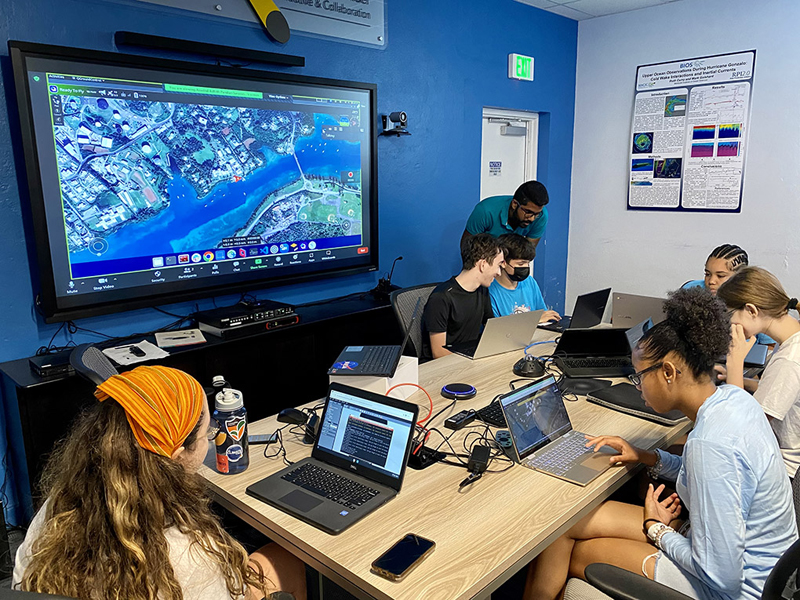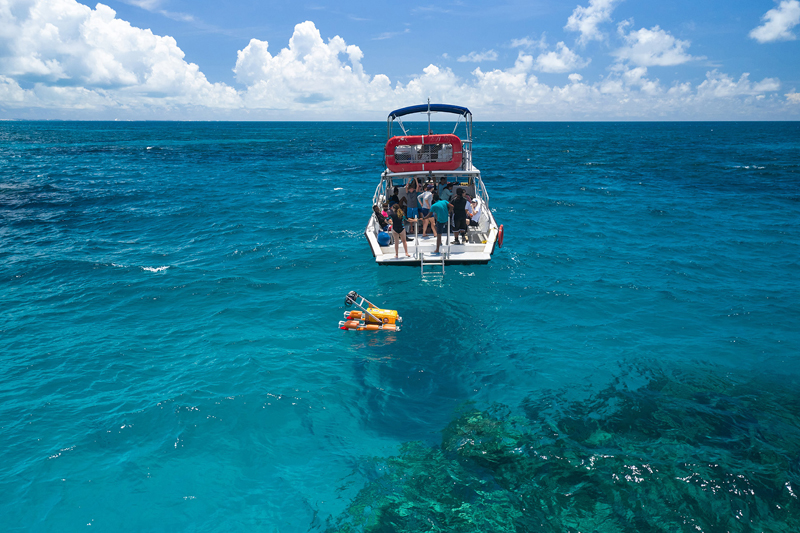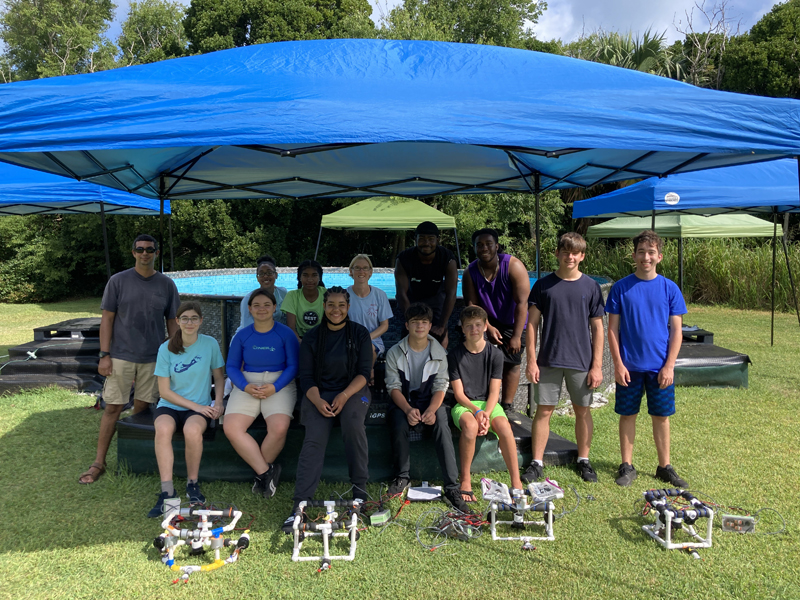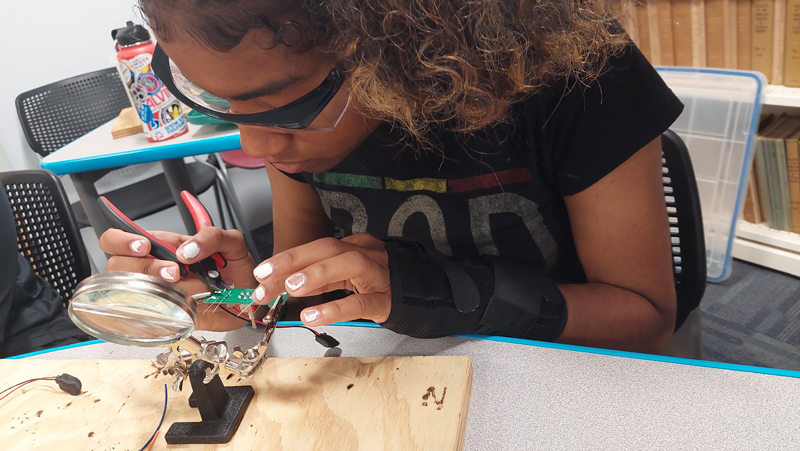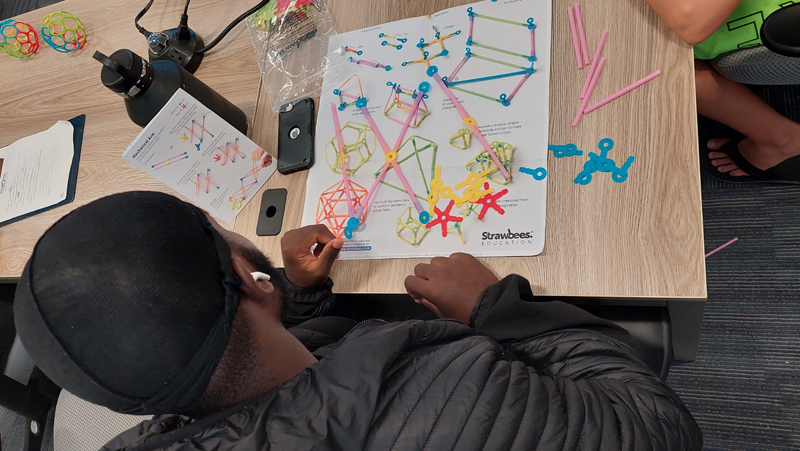BIOS: Innovations For The Environment
A collaboration between BIOS and the University of Rhode Island will be providing an exciting educational opportunity for Bermudian students within the Mid-Atlantic Robotics In Education [MARINE] program called ‘Innovations for the Environment’.
A spokesperson said, “With generous support from lead sponsor RenaissanceRe and contributing support from Butterfield, 10 students will be selected to participate in a hands-on engineering and design workshop hosted on the BIOS campus. For five days, from July 3 through 7, Bermudian students between the ages of 14 and 17 will learn about emerging ocean technologies and how they are being used to address complex environmental problems. Participation in the program is free; however, students must be nominated by a teacher, mentor, or educator outside the formal classroom.
“‘Innovations for the Environment’ is an award-winning capstone training that invites students to explore engineering concepts, and how they are critical to current and future research in ocean science. Students will be exposed to future careers in ocean engineering, computer science and design.”
“RenaissanceRe has proudly supported the BIOS MARINE Program since 2020. We hope that the hands-on experience students gain this year from the Innovations for the Environment capstone training inspires a life-long appreciation and interest in advancing global ocean studies and protection,” said Harriet James, SVP, Head of Sustainability Strategy, RenaissanceRe.
“This training will allow Ocean Academy to work with multiple collaborators to highlight BIOS as a testbed for ocean innovation and identify talented young Bermudians,” said Kaitlin Noyes, director of education and community engagement at BIOS.
The spokesperson said, “Joining the Ocean Academy education team as an engineering lead are Dr. Brennan Phillips, assistant professor of ocean engineering of the Undersea Robotics and Imaging Laboratory [URIL] at the University of Rhode Island and ocean engineering researcher and PhD candidate, Breanna Motsenbocker. Motsenbocker will work directly alongside students to understand the challenges of working in the deep sea and different software and hardware that are being designed to enable researchers to study these harsh environments.”
“Deep-sea research is a fascinating and rapidly growing field. I believe exposing young students to this work will ensure the next generation of researchers are prepared and excited about tackling the challenges we face when conducting research in the deep sea,” said Motsenbocker.
The spokesperson said, “The majority of the workshop will be student-led, eliciting creative design and hands-on problem solving in the classroom and maker spaces. During the workshop students will be introduced to software such as AutoCad and practice important skills such as waterproofing, 3-D printing, and soldering.
“The BIOS education team will lead students through a series of design workshops to allow teams to build their own remotely operated vehicle [ROV] from scratch over the course of the week to trial in the BIOS Innovation Test Pool on the final day of the program. Educator and software developer, Chloe Baron will lead students through computer coding challenges to enable students to resurface their underwater vehicle from 100 feet below the waves.
“Throughout the week, students will build their knowledge about the challenges of working in the deep-sea and continue to evolve their underwater robotics design and coding skills through participation in multiple workshops. BIOS is inviting nominations from the community for talented youth, including self-nominations, for this experience by May 31.”
Read More About
Category: All, Environment, News

